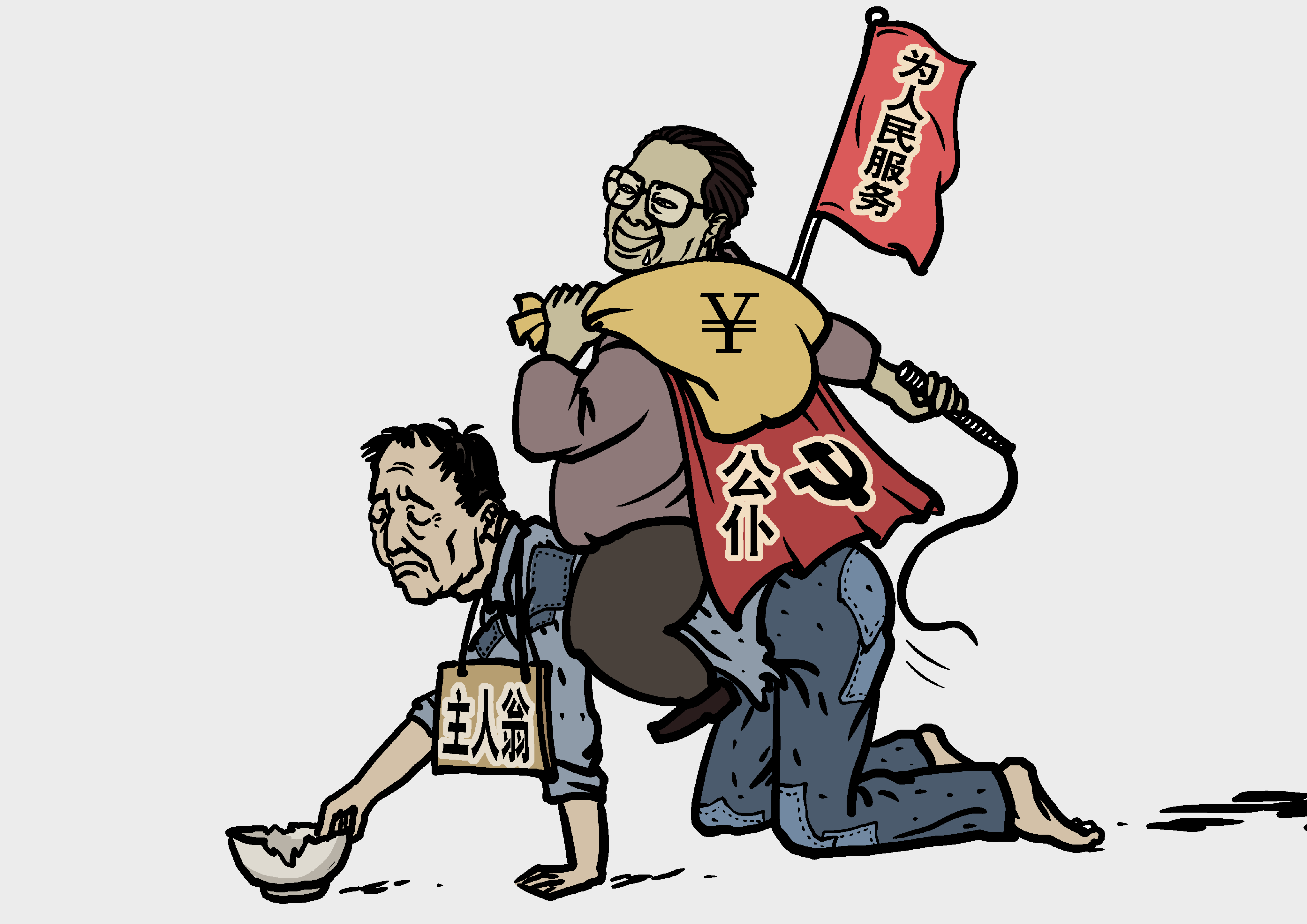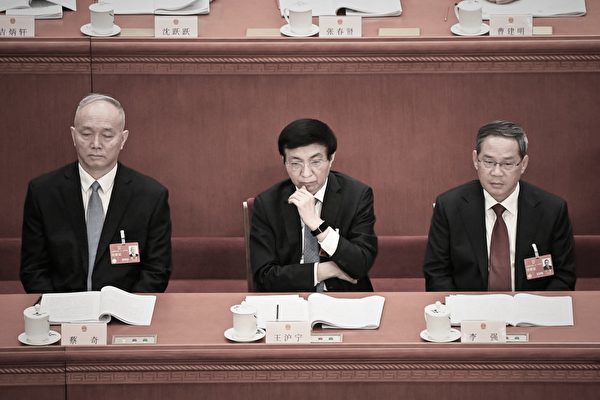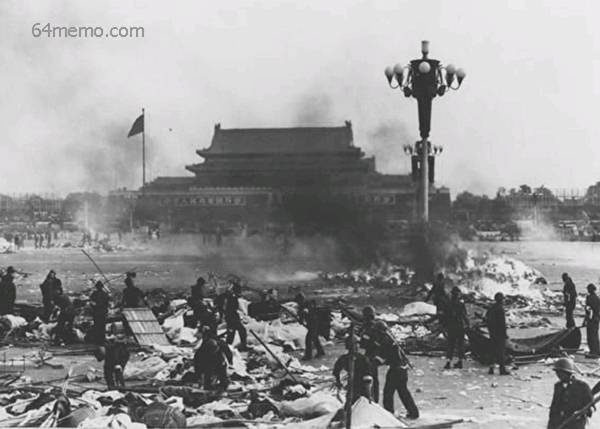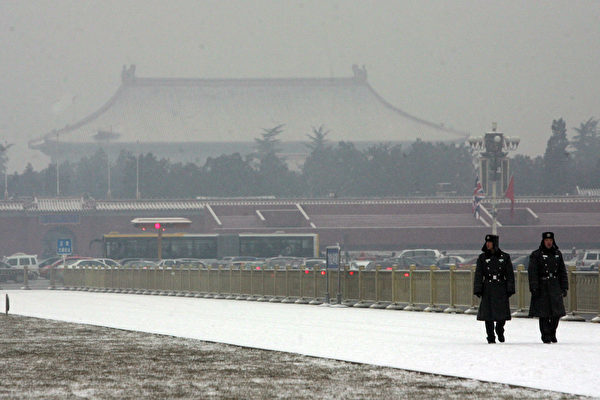(Dajiyuan Illustration)
[People News] On May 30, the Chinese military’s official website and the second page of the PLA Daily prominently featured an article titled "Public Power Belongs to the Public and Must Serve the Public," criticising the entrenched privilege mentality and practices within the Chinese Communist Party (CCP). The very first sentence of the article states: “One instance of special privilege stains the image; one abuse of power loses the people’s hearts.” It goes on to assert that “the privilege mentality is a highly dangerous corrosive agent—an extremely fatal centrifugal force.”
The article then goes on to boast that the CCP “has always been clear about the harm of privilege thinking and practices, and its stance and measures against privilege have always been unambiguous,” citing a few measures and statements by senior officials as a warning to Party members—especially high-ranking officials—not to abuse their power for personal gain.
What’s particularly noteworthy is that the article’s title—“Public Power Belongs to the Public and Must Serve the Public”—is a direct quote from Xi Jinping. On February 28, 2019, state-run media reported that the latest issue of Qiushi journal had published a speech Xi delivered during the 11th collective study session of the Politburo on December 13, 2018. The topic was the deepening reform of the national supervision system. The article highlighted several so-called “golden quotes” from Xi’s speech, the fourth of which was: “Public power belongs to the public and must serve the public. As long as public power exists, there must be checks and oversight. If it is not locked in a cage, public power will be abused.”
However, the PLA Daily article quotes this line without crediting Xi. Is this omission suspicious? In light of widespread reports that Xi is losing control over both the military and the Party, this subtle break from protocol begins to make sense.
Clearly, the military’s article was published in coordination with the CCP’s current high-profile campaign to promote adherence to the "Eight-point Regulation" spirit. Ironically, Xi Jinping, who for years has been exalted as “the One and Only,” has himself embodied the privilege mentality, notably in his refusal to be subject to checks and supervision. So, is the article also targeting Xi? If so, what does that mean? It suggests that the days until Xi’s problems—and his fate—are exposed may be numbered. But will solving Xi’s problem also solve the CCP’s privilege problem?
The answer is clearly no. In fact, the article itself contradicts the Party’s rhetoric. It notes that even during the 1930s, in the Yan’an period, senior Party cadres already enjoyed special privileges. More than 90 years have passed, and the CCP still hasn’t resolved the issue.
In 1934, as the Kuomintang encircled them, the CCP fled north and eventually holed up in Yan’an. At the time, the CCP portrayed itself as honest, people-focused, and free—an image that attracted many young people from KMT-controlled areas who were disillusioned with the regime and seeking ideals of “beauty and warmth.” One of them was Wang Shiwei, a Peking University graduate. After arriving in Yan’an, he joined the translation department at the Marxist-Leninist Institute of the Lu Xun Art Academy.
Through personal experience and observation, Wang discovered numerous problems in Yan’an. He wrote a series of essays titled “Wild Lilies,” which ultimately led to his execution. In these essays, he criticized not only the lack of warmth in the so-called revolutionary sanctuary but also the hierarchy and privilege system: “I’m not an egalitarian, but the division of clothing into three levels and food into five is clearly unnecessary and irrational—especially with clothing (I myself belong to the so-called 'mouse-catching, kitchen-helper' class, and the grapes aren’t sour).”
He lamented that while sick people couldn’t even get a bowl of noodle soup and young students had only two bowls of thin gruel a day, “some relatively healthy ‘big shots’ were enjoying extravagantly and unreasonably.”
Wang’s revelations are likely the earliest documentation of the CCP’s special supply (特供) system. Reportedly, Yan’an at the time operated a strict hierarchical provisioning system, where "private kitchens" served only officials of ministerial rank or those with over ten years of Party membership. This clearly reflects the privileges of high-ranking CCP officials.
According to an April 23, 2014, article in Southern Weekly titled “Xiao Jun Wrote to Mao Zedong to Protest the Hierarchy in Yan’an”, the writer Xiao Jun, after living and working in Yan’an for more than a year, grew disillusioned and angry at the disparities he witnessed. For instance, rank-based divisions in food and living conditions meant that ordinary writers lived on poor rations—thin millet porridge and cornbread—while administrative staff had access to cigarettes and luxury food brought in from Xi’an.
His frustration is recorded in his Yan’an Diary: “Since arriving in Yan’an, I’ve been pursued by constant unpleasantness. I fear this place—its hospitals, reception desks, theatres, restaurants… it all reeks of bureaucracy, chaos, vulgarity, and ignorance… Ugliness has gathered here!” He once saw Mao Zedong’s wife on horseback heading toward the elite cadre resort. “There isn’t even a writer’s retreat here, yet no matter where, the privileged always pick the best meat for themselves.”
When his wife was giving birth on June 24, 1941, he overheard even more appalling stories: “Li Bozhao brought his own servant and cooked five meals a day, with canned food, milk, eggs, sausages, and white buns. Yang Shangkun bought eggs by the basket and had milk, eggs, and biscuits every morning. Mao’s wife had her own nurse, guards with rifles stationed outside, and threw a banquet after the delivery. Cars were allowed to drive straight into the hospital for their convenience, regardless of visiting hours. One judge’s wife and Peng Jialun’s wife both had private rooms to give birth in. Staff always had access to luxury cigarettes, fish costing over 20 yuan a pound, and vegetables transported in from Xi’an…” He concluded: “I now understand—the filth exists everywhere. I realise the Chinese revolution still has a very long road ahead…”
Clearly, even in Yan’an, CCP officials were using their power for material privileges—practices that only worsened once the Party moved into Beijing.
After seizing power in 1949, a privileged bureaucratic class quickly took shape within the CCP, and various forms of “special supply” increased without end. Initially, the Ministry of Public Security established a Special Supply Station in Zhongnanhai (publicly called the Beijing Hotel Reception Office), managing production bases including the Jushan Farm to provide high-quality food exclusively for central leadership.
In 1955, the Beijing Municipal Government created a Special Supply Leading Group and built a special supply point at No. 34 Donghuamen, catering to officials at the vice-ministerial level and above. This supply point offered over 1,600 luxury products, including premium tobacco, wine, sugar, tea, canned goods, condiments, poultry, seafood, and imported items such as branded appliances, watches, perfumes, wool, chocolate, brandy, whiskey, sanitary products, and jewelry—all unimaginable luxuries to ordinary Chinese citizens.
Beyond material privileges, CCP officials also enjoy exclusive access to secretaries, guards, drivers, domestic staff, chefs, medical care, private vehicles, and special housing. As for Mao Zedong, his special privileges were comprehensive and unmatched.
According to the online article “Revealed: Mao Zedong’s Hidden Life of Extravagance,” Mao's favourite foods were flown in from all over the country. For example, his beloved fresh fish from Changsha’s Dongfanghong Fishery was delivered weekly by special plane. When he wanted Wuchang fish, it was flown in from Wuhan. And so on.
Even during the Great Famine that starved tens of millions, the CCP elites never saw a reduction in their material privileges. After the Cultural Revolution ended, the special supply system didn’t disappear. Following the 1989 Tiananmen crackdown, the Politburo issued a directive to eliminate special food provisions, but it has never been enforced. As China’s moral fabric has eroded and food safety crises have worsened, “special supply” has now expanded down to the city, county, and township levels, with officials using their power to create their own private supply chains.
And what about CCP officials' privileges in education, healthcare, and housing? Every Chinese citizen is well aware. Just look at the cash, properties, and wealth possessed by disgraced officials to see where the hard-earned money of the people has gone. But if Xi Jinping has been cracking down on so many corrupt officials since coming to power in 2012, why does corruption only seem to be getting worse?
In truth, the root of the problem is well known to the CCP itself: public power must be “checked and supervised,” and must be “locked in a cage.” But only free media and the people can perform those checks and supervision, just like the United States' system of checks and balances. If a U.S. president governs poorly, they will be criticised by Congress and the media and voted out by the public. But would the CCP ever be willing to return power to the people? Clearly, a regime that insists on one-party dictatorship will never willingly relinquish power. This means the privilege mentality among officials will never be eliminated, anti-corruption efforts will be short-lived, social problems will continue to multiply, and in the end, the CCP has no way out but to be consigned to the trash heap of history.
(Originally published by People News)











News magazine bootstrap themes!
I like this themes, fast loading and look profesional
Thank you Carlos!
You're welcome!
Please support me with give positive rating!
Yes Sure!